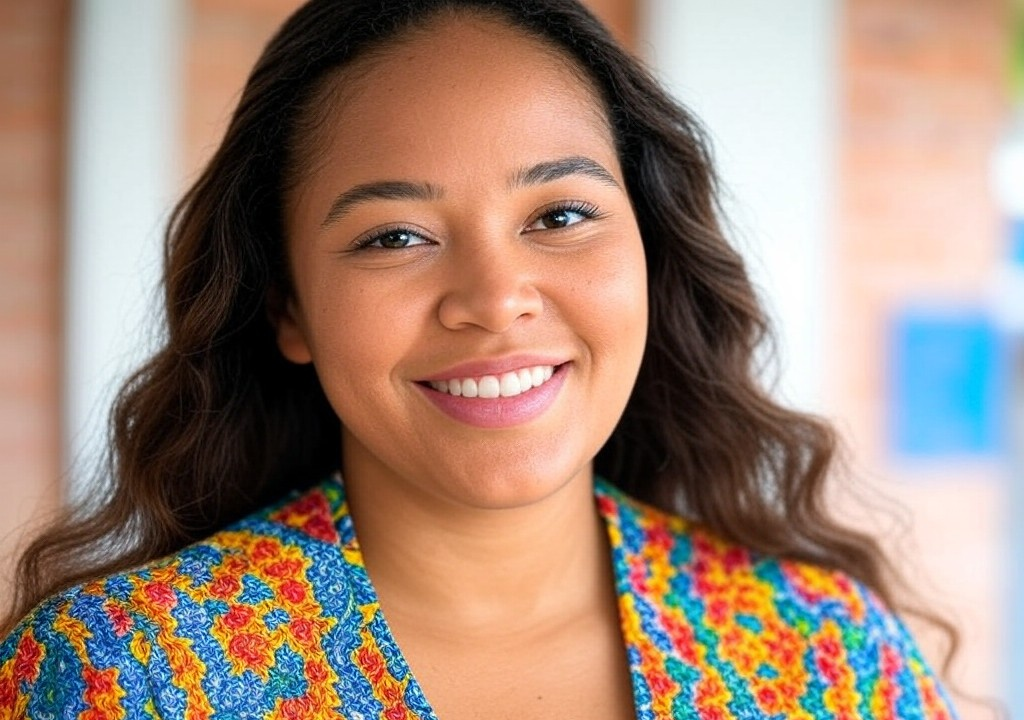Growing up in Houston's East End—where the Gulf Coast humidity feels like a warm tía who won’t stop hugging you—I've always felt grounded. I can dance a mean cumbia at family parties. I can whip up a Cuban cafecito strong enough to mend broken hearts. But no matter how confident I seemed on the outside, I carried a deep, secret fear: being vulnerable with others. Not just your everyday, "Do these jeans make me look weird?" type of vulnerability. I’m talking about letting someone see the real me, flaws and all, without wearing an emotional hazmat suit.
Sounds dramatic, right? Classic Ileana—channeling telenovela vibes. But in a family culture where “strength” often means staying private about struggles, I didn’t exactly grow up with open invitations to bare my soul. The more people praised me for being “strong,” the harder it became to admit when I felt anything but.
Let me walk you through how I tackled my fear of vulnerability head-on, one awkward, sweaty moment at a time. Spoiler: It wasn’t pretty, but nothing worth doing ever is.
Vulnerability Isn’t Weakness, It Just Feels Like It
The first time I realized vulnerability might be my personal Achilles’ heel was during a group presentation in college. My professor had assigned a peer-review exercise where we had to critique each other’s work. Y’all, someone politely suggested a minor tweak to my part, and I internally spiraled into a Greek chorus of “You’re not good enough.” What was supposed to be constructive feedback left me silently proofreading that PowerPoint at two in the morning, wondering why I couldn’t just take it in stride.
This theme carried over to my friendships, my family, and especially my romantic relationships. See, in my family, you don't really talk about feelings; you "fix" them. A bad day? Comete un pastelito and smile through it. It’s a survival mindset passed down through generations, but it left me emotionally unprepared when I needed to express myself without sugarcoating it—literally.
In relationships, this meant I built cities out of walls. I avoided hard conversations, brushed off meaningful compliments with jokes, and ghosted people emotionally rather than letting them see me upset. Vulnerability? That must’ve been for people who post long Instagram captions about their growth journeys—not someone like me who preferred rapid-fire memes to deep heart-to-hearts.
The Turning Point: Ugly Crying in a Cafeteria
Here’s the thing about running from your fears: They tend to catch up. For me, that moment came when I was 26, dating someone who actually liked to talk about their emotions. Weird, right? One day over a casual lunch, they said something that absolutely floored me in the simplest way:
“I don’t need you to be perfect. I just need you to be honest.”
Cue the soundtrack screech. Who says that? My first instinct was panic. Then the tears followed because, deep down, I knew they were right. I had been hiding behind perfectionism and walls of humor so thick you’d need a bulldozer to crack through them. Being "honest" about how I felt—about my insecurities, fears, hopes—felt like standing in front of an audience in nothing but a glittery bodysuit. Uncomfortable, to say the least.
When the crying slowed down and the cafeteria crowd went back to ignoring our drama, I had a realization: the world didn’t end. My partner didn’t take off running. In fact, they smiled, handed me a napkin, and asked more questions about what I was feeling. That small moment was my catalyst for change.
Steps I Took to Conquer the Fear
Of course, overcoming a fear of vulnerability doesn’t happen overnight. But, as with anything difficult, practice makes better. Here’s what helped me:
-
Start Small
Vulnerability doesn’t mean baring your soul to every person you meet—it’s a muscle that needs strengthening. I began opening up in small ways. When a friend asked, “How have you been lately?” instead of brushing it off with the usual “good, just busy,” I mentioned something real. “Honestly, I’ve been really stressed at work, and I’m trying to figure out how to balance it all.” Baby steps, sure, but progress nonetheless. -
Redefine Strength
If you’re like me, you might equate vulnerability with weakness. Reframe that lie. Vulnerability takes guts. Imagine trying to sing karaoke sober at a packed bar—that’s the kind of strength it requires. Allowing someone to see your true self? That’s the emotional equivalent of belting Beyoncé without backup. -
Let Go of Perfectionism
Perfectionists like me get stuck in the belief that being imperfect equals being unworthy. Spoiler: It doesn’t. Nobody is keeping tabs on every awkward thing you say or do—they’re too busy worrying about their own stuff. Letting go of that pressure helped me embrace authenticity (even when it would’ve been easier to fake it). -
Find the Right People
Not everyone deserves your vulnerability, and that’s okay. Over time, I became more selective about the people I allowed into my emotional VIP section. You want friends, partners, or family members who can sit with your feelings instead of trying to fix them—or worse, using them against you. -
Laugh About It Sometimes
Vulnerability can feel heavy, but humor is a great diffuser. For example, now when I tell friends about my first disastrous "I’m trying this vulnerability thing," I joke about crying in that cafeteria like it was my Academy Award-worthy drama debut. A little levity can go a long way in reframing your past struggles.
A Love Note to the Other Side
Facing my fear of vulnerability didn’t just improve my relationships—it gave me room to improve my relationship with myself. I no longer have to wonder if people like the "real me," because I’m actively showing up as her. Vulnerability isn’t easy, and I’d be lying if I said I’ve mastered it completely. But every day I inch closer to being more open, I’m met with something unexpected: connection.
Think of it this way: vulnerability is like salsa dancing—you’ll step on toes, feel clumsy, and probably look ridiculous at first, but if you keep at it, you’ll find your rhythm. And when you do, it’s magic.
To anyone out there hiding behind their own walls, let this be your sign. Break them down, brick by brick. Your people—your real ones—are waiting on the other side, arms wide open.
Trust me, it’s worth the risk.




















